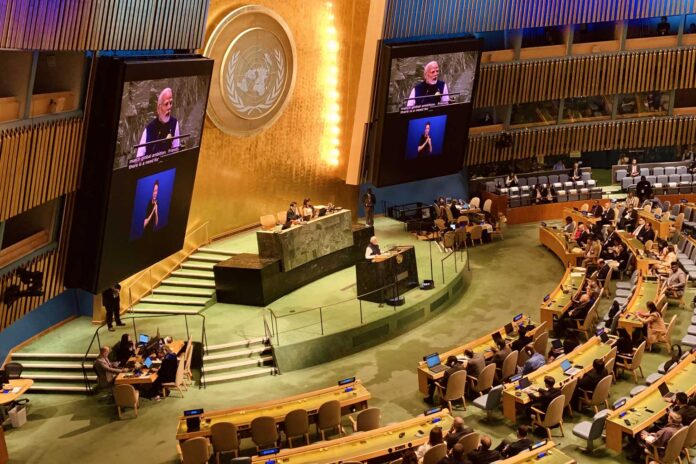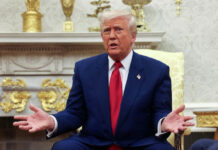
New York: Prime Minister Narendra Modi, in his address at the UN’s ‘Summit of the Future’ on September 23, pushed for global governance reforms, highlighting the need for inclusive and representative institutions that better reflect today’s geopolitical realities. Modi emphasised India’s leadership in technology, particularly digital inclusion, while calling for developing countries to have a greater voice in global decision-making.
The Prime Minister underscored India’s contributions to climate action, focusing on renewable energy and sustainability, and advocated for urgent global cooperation to combat climate change.
In his speech, Modi stressed that India’s success in digital infrastructure offers a blueprint for other developing nations. “India has shown the world how digital inclusion can transform lives,” he said. India’s prowess in technologies like 5G, AI, and semiconductors, according to Modi, positions the country as a crucial player in shaping the future of global tech.
On global governance, Modi was firm in calling for reformed institutions like the UN Security Council, urging a fairer representation for developing nations. He emphasized the importance of a multilateral system that caters to the modern world, echoing a long-standing demand for India’s inclusion in key global bodies.
Apart from the summit address, Modi’s visit included bilateral talks with key world leaders such as Palestinian President Mahmoud Abbas. These discussions covered crucial topics, including climate action, security, and economic development. Modi also engaged with top tech CEOs, pitching India as an investment destination and innovation hub.
Modi’s address marks India’s push for a greater role in the global order, especially in areas like climate change and digital transformation. His call for inclusive governance and collaboration on technology highlights India’s ambition to lead on global issues.









